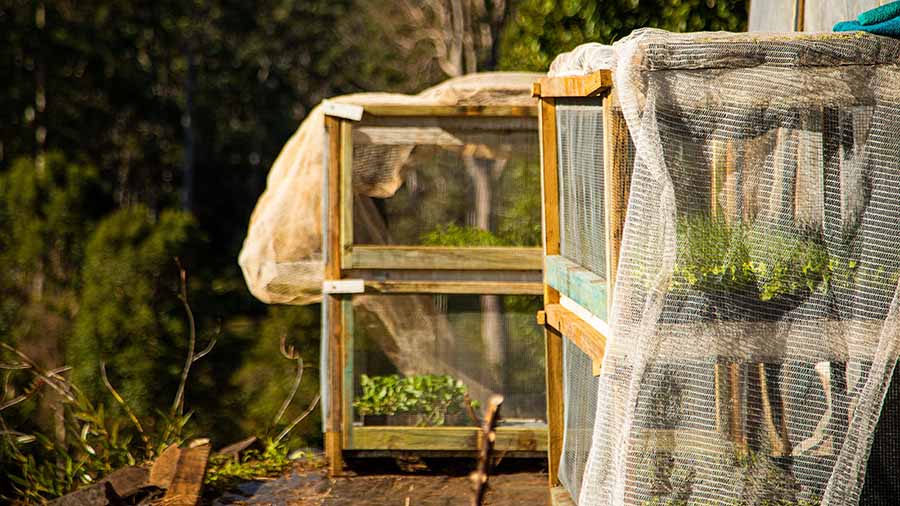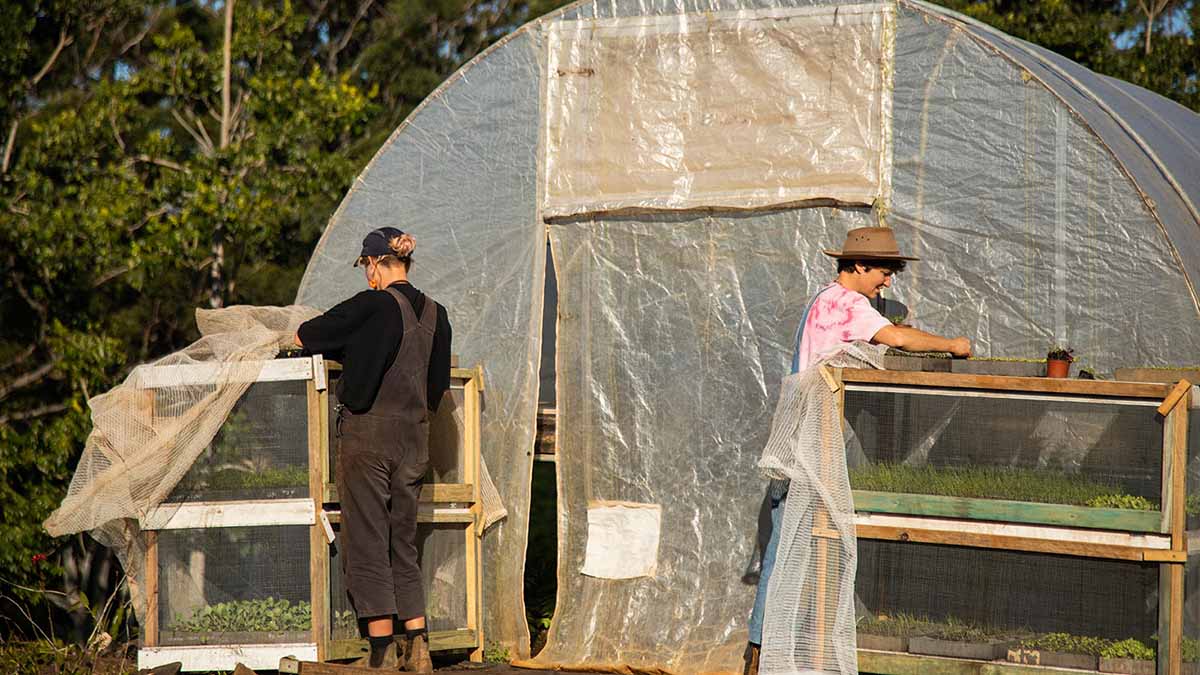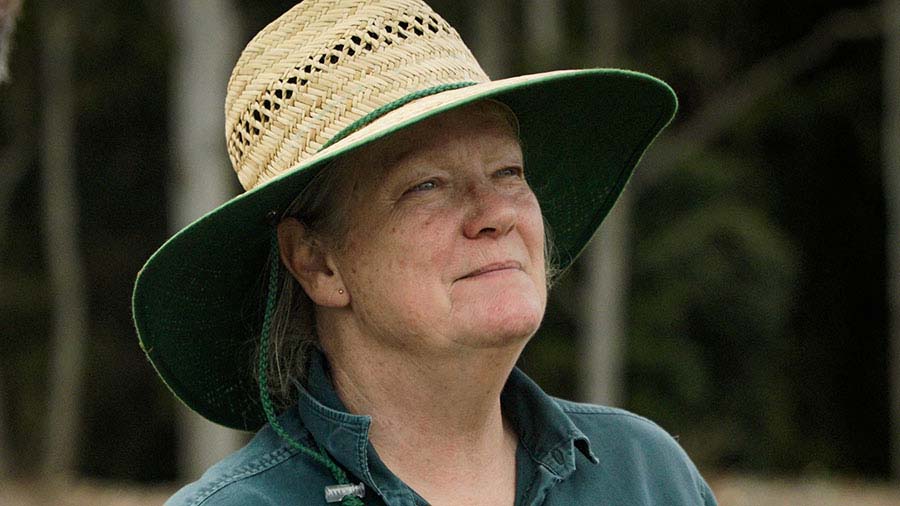With a background in science and plant physiology, Christine is passionate about the science of growing food, as well as Australia's culinary heritage. She became frustrated with the lack of diversity in the vegetables grown, sold and eaten by the majority of Australians. Most supermarkets and fruit shops sell cool-climate vegetables year round, despite South East Queensland's subtropical climate. 'There's more than broccoli and carrots and pumpkin and potatoes. There's a lot more food we should be eating, but that food has been lost,' she says.
There's more than broccoli and carrots and pumpkin and potatoes. There's a lot more food we should be eating, but that food has been lost.
Christine explains: 'The food culture we inherited in Australia is primarily Anglo-Saxon. I can grow these things in winter in South East Queensland, but I can't grow them in summer, so what do I feed my customers in summer?'
To combat this issue, Christine started considering the vegetables grown in various countries and regions occupying the same latitude as South East Queensland. These include nations from Southeast Asia, the South Pacific, South America and South Africa.
Sadly, many of these vegetables haven't had the chance to be experienced by mainstream Australian palates due to strict biosecurity laws and eating habits.
To investigate these vegetables, Christine began seeking them out at international food markets, where second and third-generation immigrant families sell the produce that they've been growing in their backyards for years.
Christine would wander the market stalls, sampling fruits and vegetables that were often completely alien to her. She would learn all she could from vendors but was sometimes limited by language barriers. In those instances, Christine would buy the produce and research its traditional culinary uses online.
 Quarantine gardens to study growing habits
Quarantine gardens to study growing habits
After identifying promising candidates, Christine would then seed save or strike cuttings from these vegetables and fruits. Acutely aware that if a species proved invasive it could endanger the neighbouring national park, she would first sow seeds or plant into quarantine gardens to study their growing habits. If these species grew well, and they were deemed safe, she would plant and grow at a larger scale.
Christine also spent time researching the cultivars of known produce; for example, the tropical varieties of traditional eggplant. She investigated these alternate varieties because plants native to the tropics are more resistant to the fungal, viral and bacterial diseases that plague their temperate counterparts.
Christine has identified an ever-increasing number of latitude plants that grow well on the Mapleton property. Some of her favourites include ping tung long, a Taiwanese eggplant; black sapote, a Mexican chocolate pudding fruit; and white choko or chayote, a native of Central America.
A key to growing a market for these exotic fruits and vegetables is engaging with the change makers who influence our culinary culture. Chefs in particular have proven the best guides to present the flavours and possibilities of Christine's 'discoveries' to mainstream diners.
Chefs in particular have proven the best guides to present the flavours and possibilities of Christine's 'discoveries' to mainstream diners.
Christine describes chefs as artists and the vegetables she grows act as the palette with which they create their art. She hopes that by bridging the gap between the international backyard growers and some of Brisbane's top chefs, the culinary culture can start to change, and the vegetables grown and eaten in South East Queensland can start to better reflect the region's subtropical climate and growing conditions.
The Falls Farm now supplies high-quality produce to a growing number of chefs across Brisbane and the Sunshine Coast. Within 36 hours of picking, the produce is in their restaurant.
'There is a cohort of chefs now that are really looking for this quality, this freshness and that it's bespoke. We're able to establish a price that's commensurate for the amount of work we put in and for the value that they get,' says Christine. Working with chefs has become a profitable market opportunity and a large part of the farm's business model.
The farm has recently purchased the Mapleton Public House, to continue its work in the farm-to-table movement and to bring latitude plants into the mainstream eating culture. They are working with acclaimed chef and longtime partner Cameron Matthews to develop seasonal menus straight from the farm. They plan to run regular events and workshops to showcase what The Falls Farm is growing each season.
'The connection and the provenance of the food is becoming more and more paramount to customers. I want to be able to pass on the effort that farmers put into producing the products that we use,' says Cameron. 'To be able to pay that back by telling people about where their food has come from and pay homage to the effort, the love and the care that the farmer has put into growing the food is super important.'
The connection and the provenance of the food is becoming more and more paramount to customers. I want to be able to pass on the effort that farmers put into producing the products that we use.
The Falls Farm was recently recognised as a state winner and national finalist in the 2022 Delicious Produce Awards in the 'From the Earth' category. Finalists are nominated by some of Australia's top chefs who work with producers leading the field in production and farming practices.
As the region's culinary culture changes, Christine hopes to keep exploring latitude plants at The Falls Farm. Christine also hopes that biosecurity laws start being reviewed so that there can be access to crops that are better suited to the Australian climate.
The farm will continue to work with chefs and food media to encourage this shift. Their new venture in taking over the Mapleton Public House and working with Cameron Matthews will also help drive change by encouraging diners to try new flavours and learn about where their food has come from.



